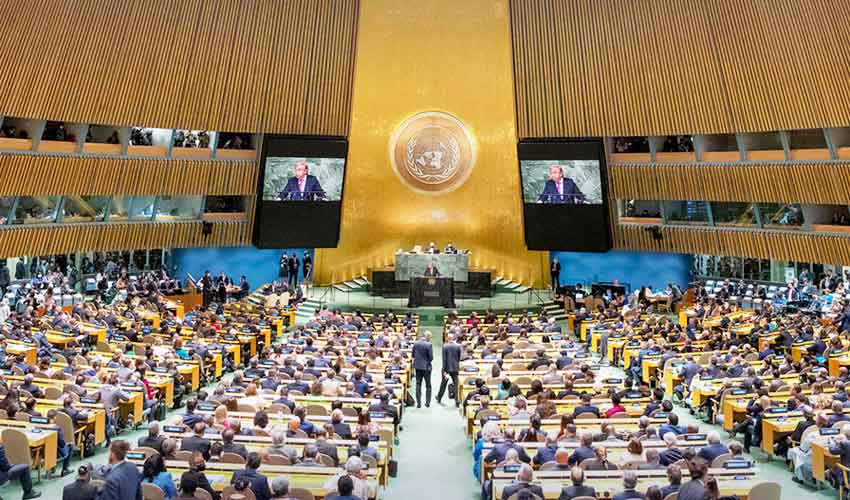The United Nations General Assembly is set to deliberate on artificial intelligence (AI) on Thursday, contemplating a resolution that outlines the potential benefits and drawbacks of the transformative technology while advocating for the establishment of international standards.
Co-sponsored by numerous countries, the resolution underscores the importance of guidelines aimed at promoting the safety, security, and trustworthiness of AI systems, while explicitly excluding military AI from its scope.
Emphasizing the positive potential of AI, the resolution also calls for efforts to bridge digital divides both between and within countries.
Proposed by the United States, the draft resolution is the first of its kind on this issue and is scheduled for submission to the assembly for approval on Thursday. It seeks to facilitate digital transformation and equitable access to AI in alignment with the UN's Sustainable Development Goals, aiming to ensure a better future for humanity by 2030.
US Ambassador to the UN, Linda Thomas-Greenfield, emphasized the urgency for collective action as AI technologies rapidly advance.
However, analyst Richard Gowan from the International Crisis Group noted that the focus on development appears to be a strategic move by the US to garner support from poorer nations.
While acknowledging the threats posed by AI misuse, the draft resolution also addresses concerns about the erosion of human rights, reinforcement of prejudices, and risks to personal data protection. It urges member states to refrain from using AI systems that violate international human rights law or pose undue risks to human rights enjoyment.
UN Secretary-General Antonio Guterres has prioritized AI regulation, advocating for the establishment of a UN entity modeled after organizations like the International Atomic Energy Agency (IAEA). He has also highlighted the potential for disinformation and warned against bias in technologies predominantly designed by men.
Amidst a race among various UN member states, including the United States, China, and South Korea, to lead on AI regulation, the White House has unveiled rules to ensure US leadership in this area. President Joe Biden has emphasized the necessity of governing AI technology.



























